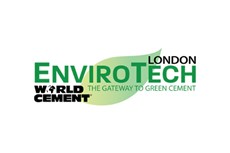Cement industry presents roadmap to increased competitiveness in the Philippines
Published by Katherine Guenioui,
Editor
World Cement,
In the Philippines, representatives of the cement, iron and steel and mass housing industries have presented proposed roadmaps to boost competitiveness.
Representing the cement industry, Ernesto M. Ordoñez, president of the Cement Manufacturers’ Association of the Philippines, proposed stricter enforcement of cement quality standards. He asked the national policies are properly reflected in local government regulations and there be no double taxation. The cement industry also requested that any fiscal incentives for new entrants be rolled out to existing companies undergoing expansion projects.
The iron and steel industry recommended that incentives to investors be reviewed. Mergers and consolidations should be encouraged in order to achieve economy of scale, they suggested. The representative, Roberto M. Cola, president of the Philippine Iron and Steel Institute, also recommended that the drive for technology and equipment upgrades should be intensified and that opportunities to import raw materials and export finished products within Southeast Asia should be explored.
From the housing industry side, the representative Paul H. Tanchi, president of the Subdivision and Housing Developers Association, Inc., spoke about the housing shortage, which runs to around 3.9 million units and is set to hit 6.5 million units by 2030. He suggested that the mass housing industry should join forces with housing developers and industry partners to achieve 1 million homes built in 2012 – 2016, 2 million in 2017 – 2022 and 7 million in 2023 – 2030.
Edited from various sources by Katherine Gu
Read the article online at: https://www.worldcement.com/asia-pacific-rim/11102013/cement_roadmap_released_in_philippines_286/
You might also like
The World Cement Podcast
A podcast series for professionals in the cement industry featuring short, insightful interviews. Subscribe on your favourite podcast app to start listening today.


